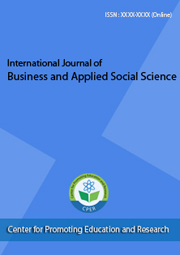Journal Menu
current
VOLUME: 4; ISSUE: 7; JULY: 2018
Table of Contents
Articles
Author(s): Dr.Sudatta Banerjee
Full Text
1028 921
1028 921
Abstract:
The availability of skilled and trained manpower is a crucial element in the successful long-term development and sustainability of a tourist destination. Skilled and trained human resources will ensure the delivery of efficient, high-quality service to visitors, which is a direct and visible element of a successful tourism product. High standards of service are particularly important in sustaining long-term growth, since success as a tourist destination is determined not only by price competitiveness or the range of attractions available, but also by the quality of the services provided, there by the qualified human capital. Tourism can generate foreign exchange, employment opportunities along with economic development and hike in government revenue. But the major problem is the shortage of qualified manpower. So our objective is to examine the tourism policy of West Bengal along with locating the broad employment patterns by involving the employee in decision making process to enhance the total quality in case of service providing. Employee involvement means that every employee is regarded as a valuable resource with their unique service providing abilities, not like a tailor made service provider and each employee should emotionally involve towards the attainments of the overall goals of their respective organization. Each employee uniquely contribute as input is solicited and by proper utilizing their style of management and leadership to become a global service provider.This article concerned with examining levels of employee involvement in service quality in tourism sector. This study analyses attitude of the employee towards maintaining the quality management in tourism. It examines the nature and extent of employee involvement in quality management through team working, describes the methods which management use to encourage team working. Actual levels of discretion and responsibility and autonomy afforded to teams are found to be lower and yet this study tries to find the mechanism to increasing control or limit extent sense of team working.






